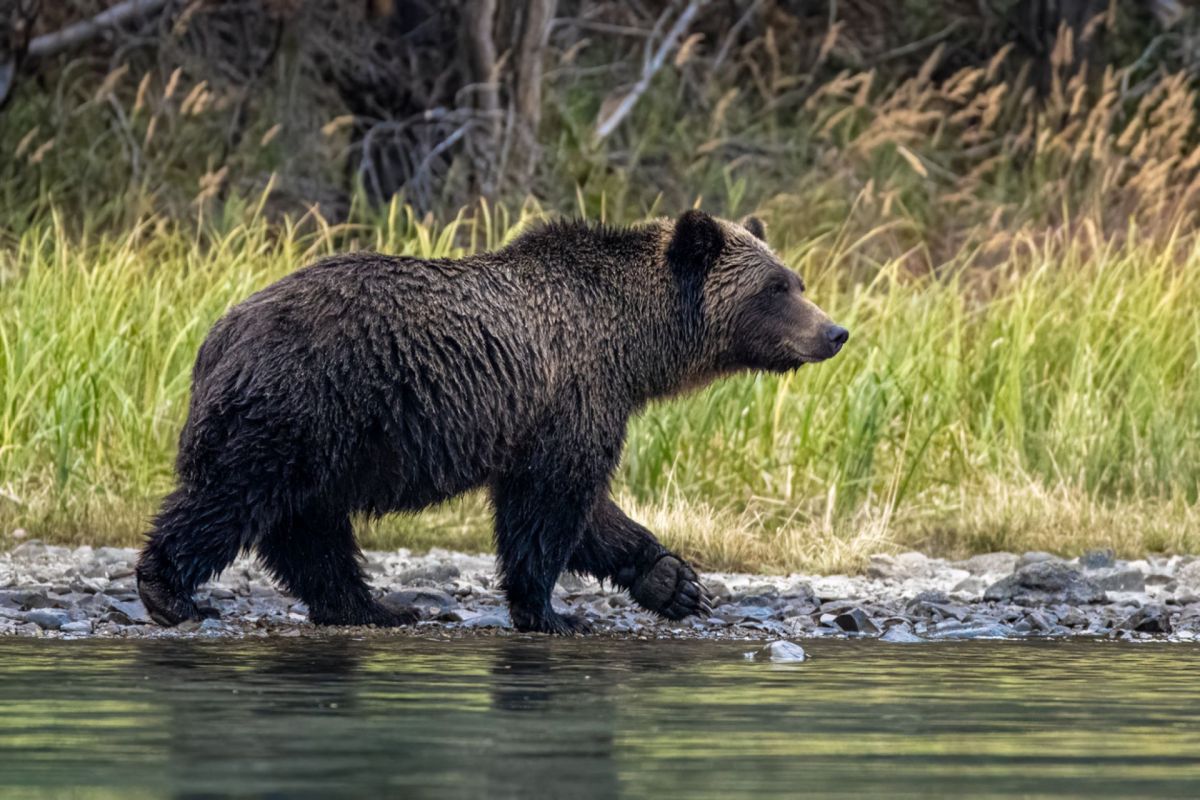Researchers have shed light on changes in behavior that have led grizzly bears closer and closer to human habitats, increasing the likelihood of dangerous interactions.
What's happening?
According to the 2021 documentary "The Beast of Our Time," grizzly bears are expanding their territories to new areas as a result of warming global temperatures, which has allowed the white pine beetle to thrive.
Unfortunately, this tiny insect had a huge impact, leading whitebark pine cone seeds — the primary food source for grizzly bears — to diminish in large numbers. This has caused grizzlies to travel farther for food and forces them to search for alternative sources of nutrition.
As One Green Planet pointed out, grizzly bears haven't just changed their ranges because of this. Their hibernation patterns are altered as well.
Why is this important?
Bear-human interactions have been on the rise — often with devastating results for humans and grizzlies.
In 2019, a mother and her infant in Canada were killed by a malnourished grizzly bear that was on the search for food prior to hibernation, as reported by CBS News. Several years later, per the Washington Post, another grizzly that had previously killed a hiker was euthanized after breaking into someone's house to look for food.
The grizzlies, which are protected as a threatened species, are an important part of keeping our ecosystem balanced and healthy. They are joining a list of other animals whose changing behavior patterns raise the alarm.
"We have grizzly bears being killed at probably two to three times the rate they were 20 years ago, which begs the question why," David Mattson, who has studied the bears for 35 years, said in the documentary.
"And that goes back to climate change. … It's had a catastrophic effect on grizzly bears — or more specially on bear-human relations. Some of what we've seen is a dramatic escalation in the numbers of bears dying because of conflicts over livestock and because of encounters with hunters," he added.
What is being done to help?
Save the Yellowstone Grizzly is one of the groups working to protect the grizzlies. It focuses on planning and conservation strategies, education on responsibly sharing the land with the creatures, and the perspective of Indigenous voices, among other things.
Donating to climate causes, taking action at a local level, and voting for pro-environment candidates are some ways to get involved with these issues.
Meanwhile, dirty energy is by far the biggest contributor to the excess of heat-trapping gases in our atmosphere. Opting for less polluting modes of transportation like electric vehicles, trains, or biking can help reduce planet-warming pollution that leads to altered animal behavior.
Join our free newsletter for cool news and cool tips that make it easy to help yourself while helping the planet.









